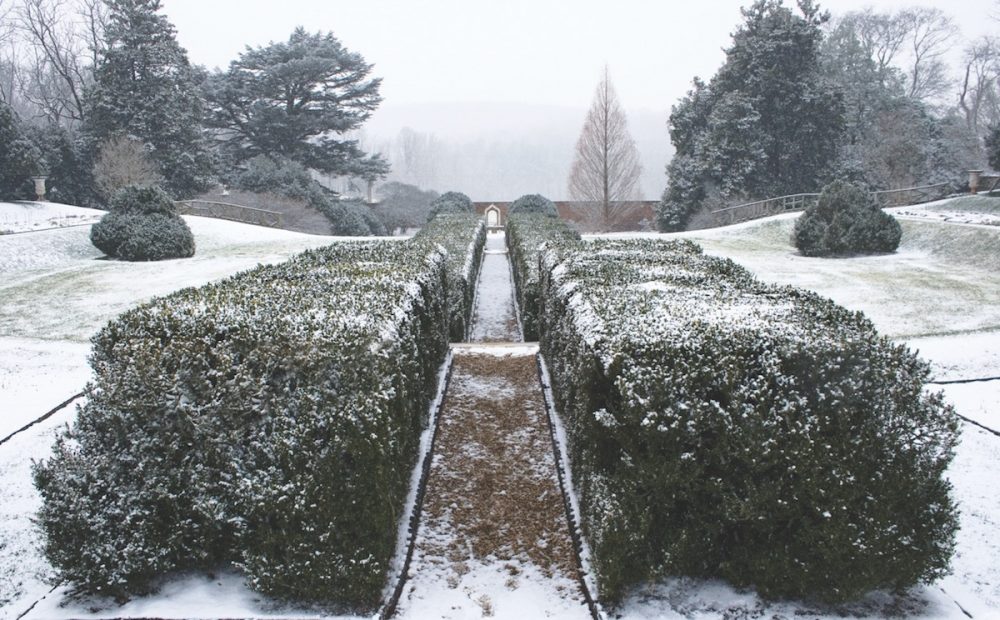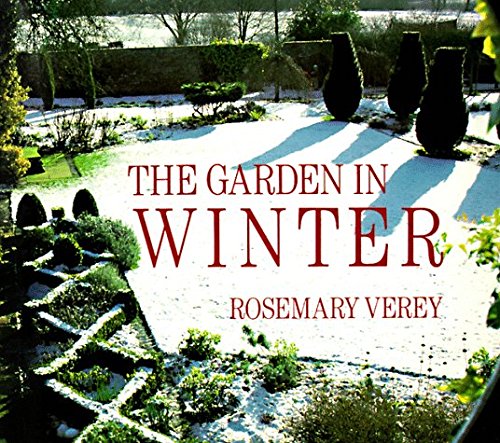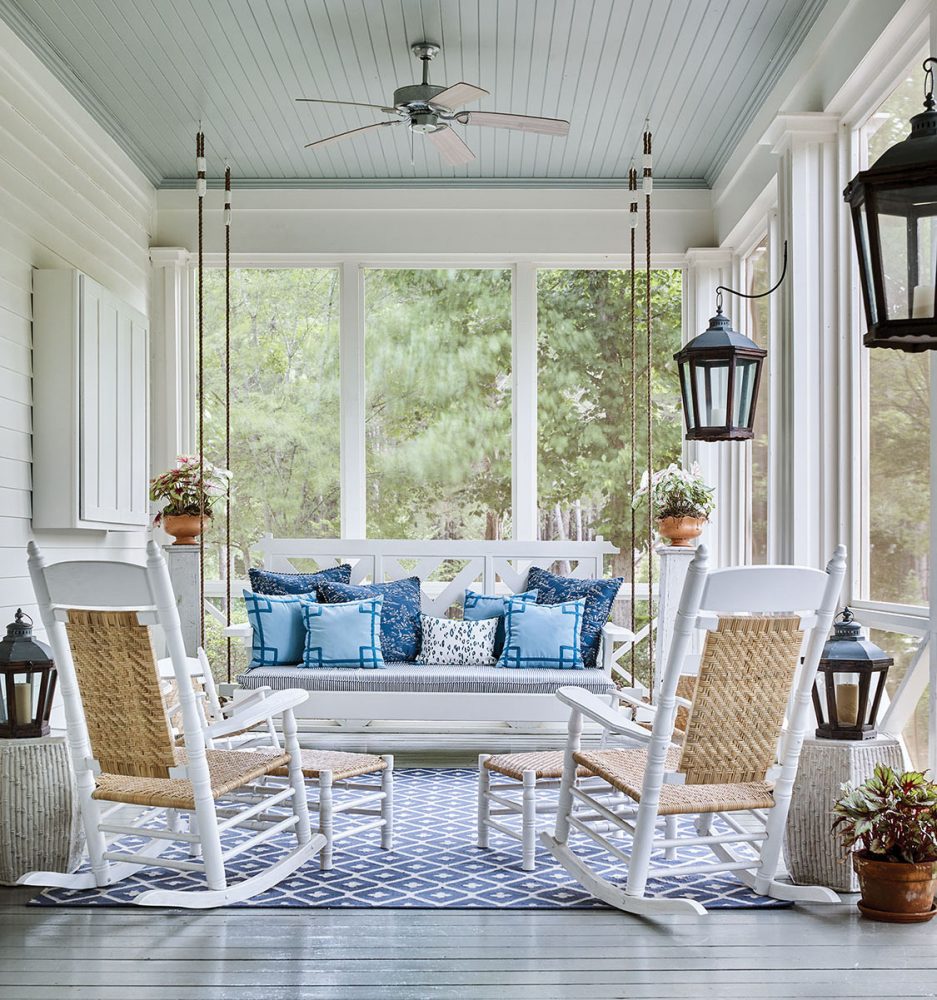
With a light dusting of snow, the Annie duPont Formal Garden at James Madison’s Montpelier illustrates the structural beauty revealed in wintertime gardens.
True gardeners through the ages have come to appreciate the splendor of a wintertime garden. A dutiful garden design must be as magnificent in winter as in spring. Would a design by Frank Lloyd Wright be any less astounding if its interior walls were not decorated? I don’t believe so. A garden, like a room in a house, must have a convincing structure—bones, as many of us like to call it. The bones of a garden are essential. Otherwise, what is the difference between the garden and a meadow? Structure provides the much-needed strength and security plants need.
Just as a father wraps his arms around his children, the bones of a garden support and protect the flowers that spring forth. Boundaries remind us where home is. One could say flowers, like children, are home for a season and then visibly off again to take on the next phase of their lives. Winter is a time of refueling and reflection, and though a winter garden may appear to be barren, it really is filled with life. Rosemary Verey tells us in her book, The Garden in Winter, “I determined to bring life to my garden in winter—to make autumn join hands with spring.”
Wintertime Plants that Bring Joy
- Lenten rose
- Winter daphne
- Beautyberry
- Witch hazel
- Snowdrop





